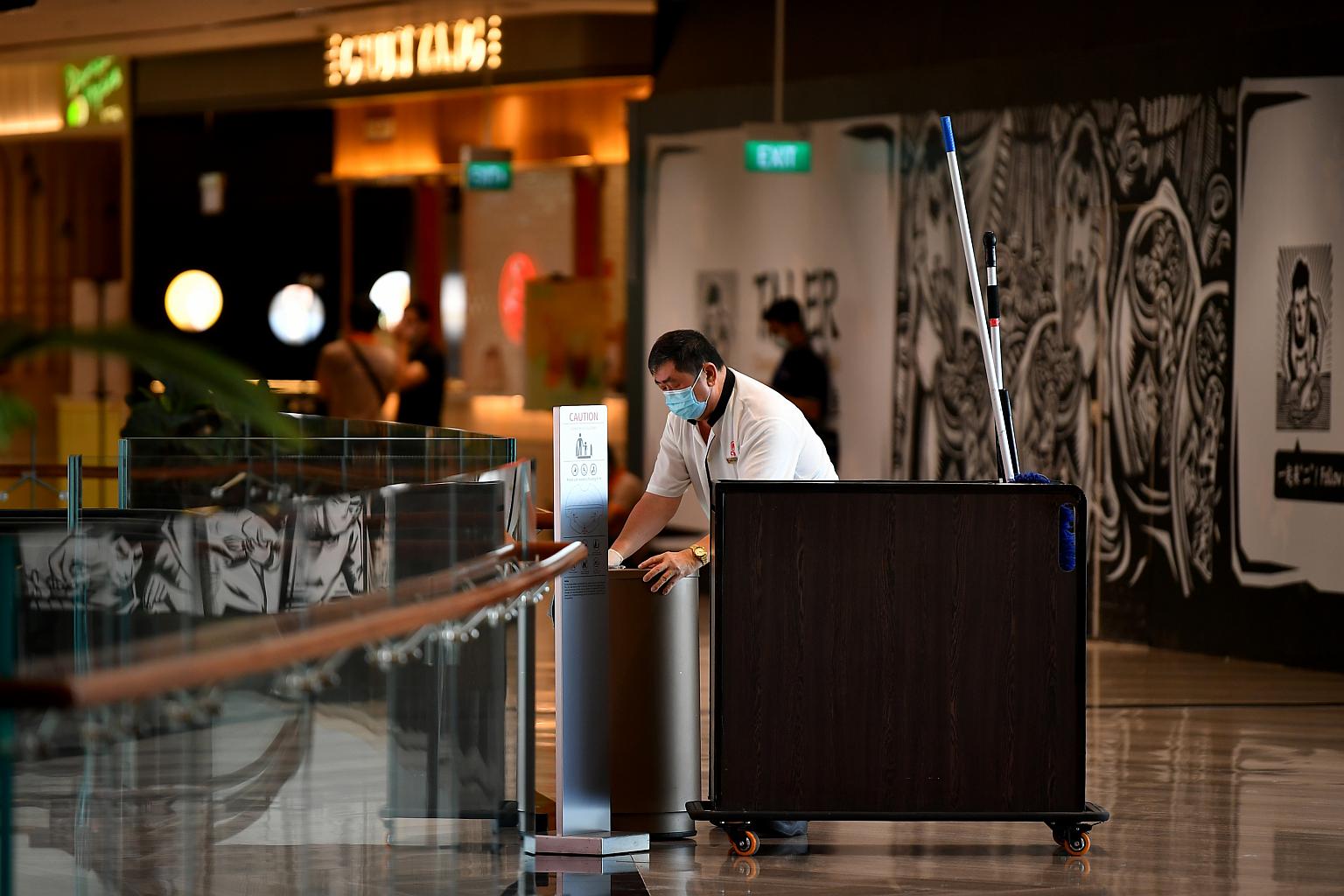18 recommendations of S'pore workgroup to improve wages and well-being of lower-wage workers
Sign up now: Get ST's newsletters delivered to your inbox

The Tripartite Workgroup on low-wage workers asked for the PWM to be expanded, and suggested other measures to boost the wages of low-wage workers.
PHOTO: ST FILE
Follow topic:
SINGAPORE - After 10 months of deliberations and consultations with over 1,800 workers, union leaders and employers, the Tripartite Workgroup on Lower-Wage Workers has made 18 recommendations to improve the lot of the bottom 20 per cent of income-earners.
The group has called for the Progressive Wage Model (PWM) to be expanded, and suggested other measures that can be leveraged to boost the wages of these workers.
The Government has accepted the recommendations, which fall into three areas:
Refresh progressive wage approach and coverage
1. Expand progressive wages to new sectors, including retail from Sept 2022, food services from March 2023, and waste management from 2023.
2. Extend existing cleaning, security and landscape PWMs to in-house workers from Sept 2022.
3. Introduce new occupational progressive wages to administrators and drivers from March 2023.
4. Firms employing foreign workers have to pay at least the Local Qualifying Salary (LQS) of $1,400 to all local workers from Sept 2022. Currently, firms have to pay some local workers this amount, depending on how many foreign workers they hire.
5. Progressive wages and LQS will be converted to fair hourly rates for those working part-time or overtime. This means firms will be able to hire locals on different work arrangements and pay them a fair wage based on hours worked, without affecting their foreign worker quota.
6. Baseline progressive wage growth for workers at the 20th percentile should outpace median wage growth.
7. Maintain the overarching principle that wages should continue to keep pace with productivity growth, but provide scope for wage growth of lower-wage workers to outpace productivity. As lower-wage workers may be in roles with limited scope for productivity gains, businesses should continue to enhance their firm-level productivity to better support wage increases.
Leverage on institutions to sustain wage growth
1. The National Wages Council should set annual guidance for progressive wage growth and recommend annual wage growth of occupational progressive wages.
2. Firms employing foreign workers have to pay at least the relevant sectoral or occupational progressive wages to all local workers in applicable job roles.
3. Leverage the Work Pass system to ensure that employers pay progressive wages and LQS before they can access any foreign workers.
4. In the long-term, express progressive wages in gross terms so that it is more relevant, since companies generally advertise monthly gross wages. This would also give firms more flexibility in structuring wages according to their needs.
Whole-of-society support
1. Government should review Workfare regularly to ensure that lower-wage workers continue to be supported even as progressive wages become more pervasive.
2. Government should provide transitional support for employers, with higher support initially as businesses recover from the impact of Covid-19.
3. Beyond wages, employers should advance the well-being of lower-wage workers by supporting them to upskill and progress in their careers; providing them with a safe and healthy work environment; and providing them with adequate rest areas.
4. Establish a new Tripartite Standard on Advancing Lower-Wage Workers' Well-Being, to help more firms adopt and implement the specified practices and be publicly recognised for doing so.
5. Establish a new Progressive Wage Mark ("PW Mark") to recognise firms that pay progressive wages. This will help corporate buyers and individual consumers identify responsible firms that support wage increases for lower-wage workers. A "PW Mark Plus" could be conferred to firms that go the extra mile to improve the well-being of such workers.
6. Public and private sector buyers should require their suppliers to obtain the PW Mark.
7. Grow the Alliance for Action for Lower-Wage Workers, so that uplifting lower-wage workers is a whole-of-society endeavour.

